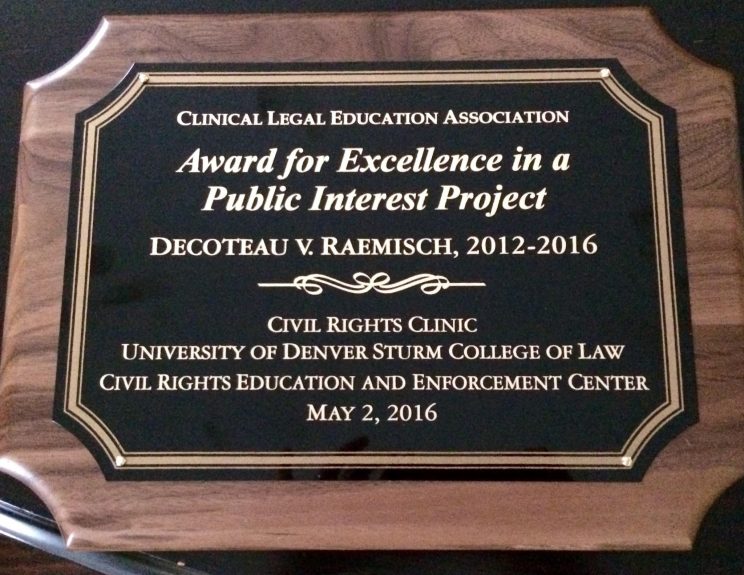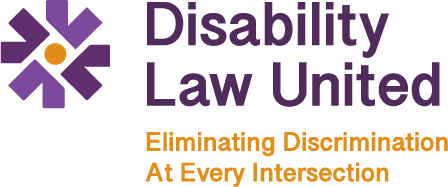We are very excited to announce that the Clinical Legal Education Association today presented the Civil Rights Clinic at the University of Denver Sturm College of Law and Disability Law United with an award for the recent settlement in Decoteau v. Raemisch.

The Decoteau case was a follow-on to Anderson v. Colorado Department of Corrections, both cases challenging the lack of outdoor exercise for inmates in solitary confinement at the Colorado State Penitentiary. Both cases were litigated with extensive work by eight generations of students at the Civil Rights Clinic, their supervising professors and fellows, and co-counsel at Disability Law United.
Troy Anderson, then an inmate in Administrative Segregation (“Ad Seg,” essentially solitary confinement) at the Colorado State Penitentiary, filed suit in 2010 challenging, among other things, the fact that inmates in Ad Seg at CSP did not receive outdoor exercise. We tried the case to the court in May 2012 — with students taking the lead — and prevailed on the outdoor exercise claim in August 2012. In response, the Colorado Department of Corrections simply moved Mr. Anderson to a different facility, but did not provide outdoor exercise to the remaining inmates in Ad Seg at CSP.
The student lawyers and professors at the CRC, again co-counseling with Disability Law United, brought a class action in December 2013 — the Decoteau case — challenging the lack of outdoor exercise on behalf of all inmates at CSP. A class was certified in July 2014 and, with trial set for November 2015, the case settled with a commitment from the Colorado Department of Corrections to construct three new outdoor exercise yards at CSP, and to ensure outdoor exercise for inmates in the three new statuses now equivalent to Ad Seg. A final approval hearing is set for June 29, 2016.
Disability Law United lawyers have enjoyed the experience of working with the students and professors at the Civil Rights Clinic. It’s a terrific program that lets students take the lead in all aspects of litigation, learning — with the expert guidance of their professors and a bit of kibitzing (in this case) from Disability Law United — how to investigate, file, litigate, try, and settle complex federal litigation. We are so glad that the Clinical Legal Education Association recognized this excellent program and honored to be mentioned alongside them.
